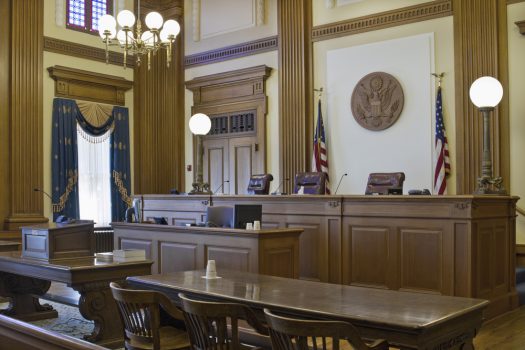In IMO Robbinsville Twp BOE v. Washington Twp Educ. Assoc., the Supreme Court of New Jersey significantly narrowed its 2015 decision in IMO Borough of Keyport. In so ruling, the court reversed what it saw as an improper expansion of its ruling to authorize a school board to unilaterally impose unpaid furlough days.

Keyport Decision
In IMO Borough of Keyport v. Local 68, the Supreme Court of New Jersey addressed whether three municipalities were required to negotiate with union representatives before taking layoff actions that negatively impacted the hours and wages of affected employees. The state’s highest court concluded that because the temporary layoffs occurred during times of fiscal distress they were not subject to negotiation under existing Civil Service regulations. It held that the municipalities “acted for reasons of economy based on municipal fiscal distress existing at the time, rendering the management choice to use a temporary or permanent layoff solution one that constituted a managerial prerogative not subject to negotiation.”
In Robbinsville, the New Jersey Supreme Court considered whether Keyport “supports a general proposition that, in times of economic crisis, a school board may unilaterally impose furlough days on teaching staff members in contravention of the parties’ collective negotiation agreement governing terms and conditions of employment.”
Facts of the Case
In response to fiscal challenges, the Robbinsville Township Board of Education (Board) announced a plan to impose involuntary furlough days on teachers with the knowledge the furloughed days would negatively impact the affected employees’ wages. The teachers’ union filed an unfair labor practice charge with the Public Employment Relations Commission (PERC). It alleged that the Board’s action violated the parties’ collective negotiation agreement and the New Jersey Employer-Employee Relations Act (EERA).
PERC granted summary judgment to the Board, relying on the Appellate Division’s decision in Keyport. The Washington Township Education Association (Association) appealed, and the Appellate Division affirmed PERC’s determination. The appeals court reasoned that the New Jersey Supreme Court’s decision in Keyport supported the Board’s ability to act unilaterally to impose the furloughed days.
Court’s Decision
The New Jersey Supreme Court reversed. “Because the Appellate Division decision is based on an overly broad and mistaken reading of our determination in Keyport, we reverse to correct the judgment and to prevent improper expansion of our circumscribed holding in Keyport,” Justice Jaynee LaVecchia wrote.
In its decision, the New Jersey Supreme Court emphasized that Keyport does not authorize the Board’s unilateral alteration of a collective negotiated agreement. As Justice LaVecchia explained:
The appellate decision undervalued the lack here of an authorizing temporary emergency regulation that permitted temporary furloughs -– a factor that had the significant impact of tilting the public policy calculus in Keyport’s analysis under the third prong of Local 195. Keyport does not stand for the proposition that anytime a municipal public employer can claim an economic crisis, managerial prerogative allows the public employer to throw a collectively negotiated agreement out the window. To the contrary, Keyport painstakingly emphasized the significance of an agency of State government enacting a temporary emergency regulation to provide local governmental managers with enhanced prerogatives in handling the extraordinary fiscal times faced in the late 2000s. The regulation’s existence made all the difference in Keyport.
The decision clearly impacts the reach of Keyport. In the absence of regulations authorizing furloughs, municipalities and school boards are more limited in how they respond to challenging economic conditions.
For more information about the Court’s decision or the legal issues involved, we encourage you to contact a member of Scarinci Hollenbeck’s Government Law Group.
